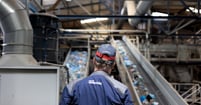Alternative fuels is a term almost everyone has heard of. We see them used in several different applications and industries all over the world. But there seem to be so many different ones, so what are alternative fuels? Read about it in this blog and learn about the benefits and what alternative fuels are.
What are alternative fuels?Alternative fuels is a collective term describing a fuel used as a replacement for a traditional fossil fuel such as, for instance, coal. This definition is used very widely. In the past, as an example, oil waste was utilised as an alternative fuel. Because The definition of an alternative fuel can change depending on the geographical location, what is available, and local legislations.
The definition of alternative fuels is typically very much related to what is available. In an area with a lot of forest and agricultural activities, the residues from these activities are typically called an alternative fuel.
In an industrial chemical complex which is typically generating various combustible residues, these can also be called alternative fuels. Even non-recyclable paper and plastic waste, which is generally broadly available globally, is called alternative fuel.
Changed perspectives of alternative fuel definition based on application
How developed the market for alternative fuels is depends on the geographical location. Each industry that uses fuel in its process could probably use some form of alternative fuels. However the definition of alternative fuels is different for each sector, you do see similarities that industries mainly use what they know and what is available to them.
For example, if there is a factory nearby with waste from tires, it is logical to use that waste as an alternative whilst for others the earlier mentioned alternative fuel definitions are the most logical considerations.
Why is waste a good alternative for fossil fuels?
With the rising need for energy on the one hand and the global political climate on the other, it is shown that there is still a great dependency for fossil fuels. Combine this with the enormous global challenges around CO₂ emissions, and you have your answer there.
Another fact is that globally waste is seen as a very big challenge, as typically waste ends up in landfills which also adds harmful Methane emissions to the atmosphere.
Waste is globally available in large quantities, and it can be utilized much smarter by turning it into an alternative fuel, designed and produced to specification so it can substitute fossil fuels. In this way, the knife cuts at both ends as both landfill capacity and fossil fuel consumption are reduced.
Benefits of waste derived alternatives to fossil fuels
The benefits of using alternatives to fossil fuels are a summary of the reasons why alternative fuels are needed:
- Typically waste derived fuels generate approximately 50% lower CO2 emissions compared to traditional fossil fuels
- A contribution is made to the circular economy by using non recyclable waste that otherwise would be used in a landfill
- The fuel mix is diversified, which makes the industries more flexible
- Typically alternative fuels can be produced with local generated waste, making industries less dependent on imports
- Switching to alternative fuels can be a reason to take a closer look at the current process to gain insights into what can be optimized
What is the best alternative to fossil fuels?
There is no best alternative fuel. It depends on a lot of elements. All alternative fuels have advantages and disadvantages, which are different for each industry. But you can say that some elements are essential to consider it as an alternative fuel:
- Availability: it must be available in large numbers continuously all year round
- Sustainable: it must contain as much biogenic material as possible so that it is sustainable in a combustion process
- Physically & Chemically: the alternative must get as close as possible to the fuel that is currently being used so that it can be used without drastic changes
Do you want to learn more about replacing fossil fuels with alternative fuels? Make sure to download our trend report by clicking the button below.





